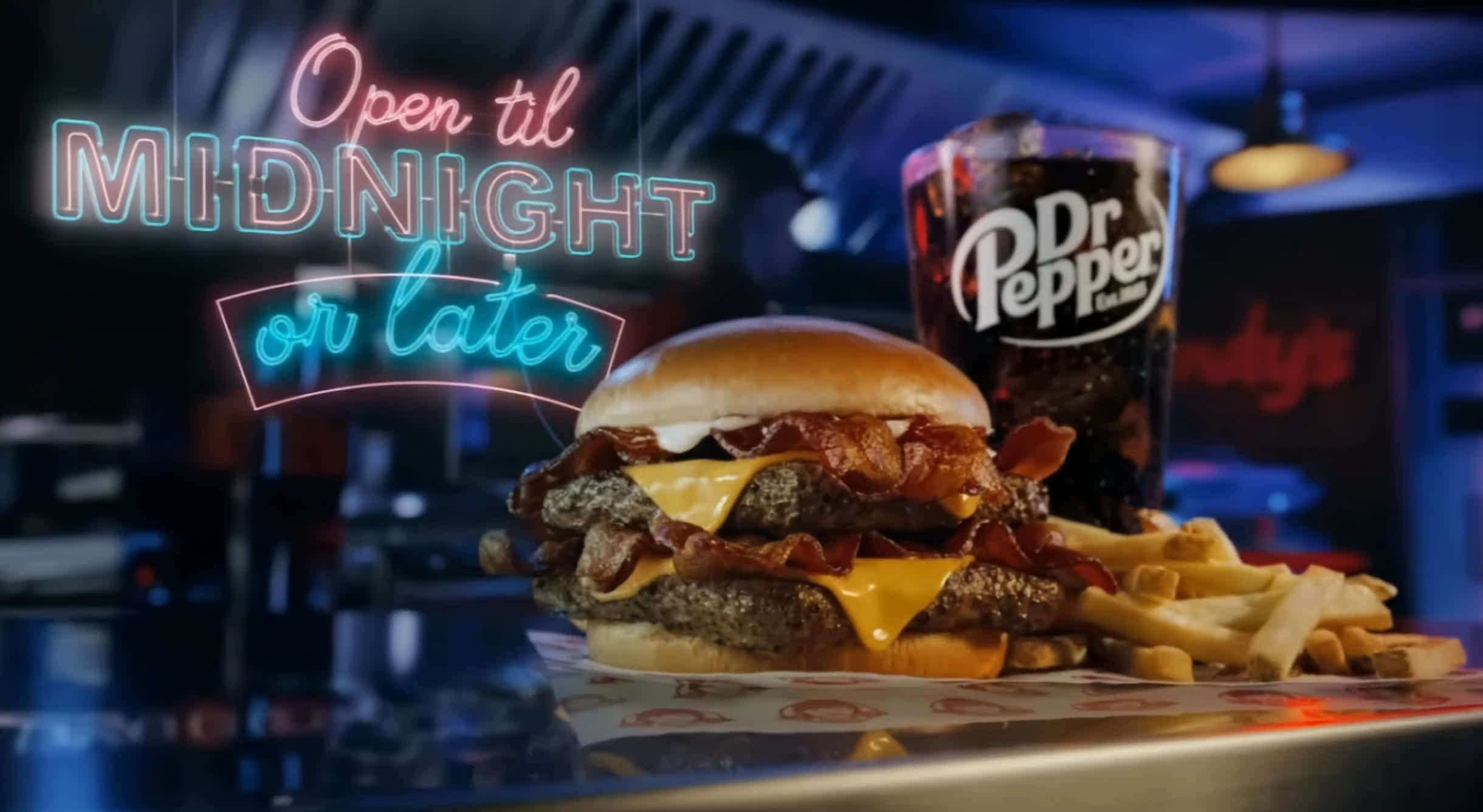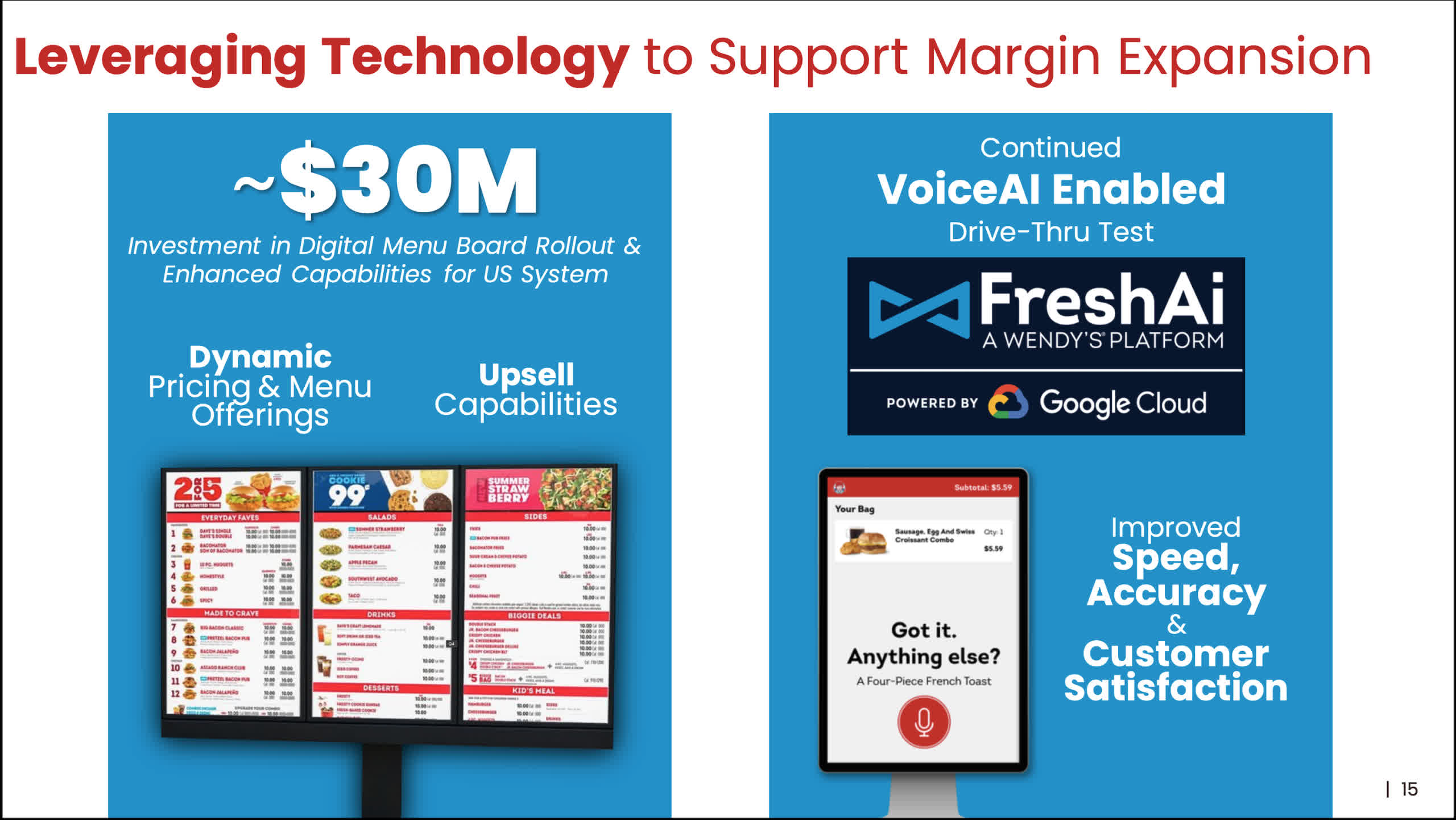Editor's take: Thanks for all your comments on our last article about Wendy's surge-pricing plans. Although the company said we "misconstrued" the CEO's words, the restaurant chain has heard your voice and will not be introducing the demand-based pricing technique after all. Instead, you can look forward to lower prices during off-peak hours, or so the company said in a revised statement. We apologize for any confusion.

On February 15, Wendy's hosted a Q4 2023 earnings call for investors. During the 53-minute slide presentation, Chief Executive Kirk Tanner mentioned that the company would start testing "dynamic pricing" in 2025.
Dynamic pricing is commonly used and understood to mean the same as surge pricing. So when the media got wind of the plan and reported on it, the internet immediately went into a frenzy, with stories going viral within 24 hours of posting. Of course, the uproar kicked Wendy's public relations machine into high gear.
On Wednesday, Wendy's released a statement denying its plans to introduce surge pricing, adding that the media misconstrued what Tanner and the company's slide presentation said.
"We said these menuboards [sic] would give us more flexibility to change the display of featured items," the company clarified. "This was misconstrued in some media reports as an intent to raise prices when demand is highest at our restaurants. We have no plans to do that and would not raise prices when our customers are visiting us most."
It added that the digital menu boards could allow it to easily make "value offers" during off-peak times. In other words, it is suggesting the opposite of surge pricing.
Relevant presentation slide. Click to enlarge.
While Tanner did say that the menus would allow them to change offerings throughout the day, he mentioned dynamic pricing in the same breath without clarifying it further. For the sake of transparency, here is what the CEO said during the conference call in its full context:
"We are planning to invest approximately $20 million to roll out digital menu boards to all US company-operated restaurants by the end of 2025 and approximately $10 million over the next two years to support digital menu board enhancements ... beginning as early as 2025, we will begin testing more enhanced features like dynamic pricing and day-part offerings, along with AI-enabled menu changes and suggestive selling."
Tanner continues talking about the company's commitment to using generative AI to increase profits and growth by improving order speed, accuracy, and customer satisfaction without clarifying what he meant by "dynamic pricing." Since the term has frequently been used interchangeably with surge pricing – the practice of increasing prices during times of high demand – clarification was necessary if that is not what Wendy's intended.
The company's tone in explaining the matter – specifically blaming the media for misconstruing its statements – is just as likely to upset people even more. Pointing fingers is never a good look. It tends to make one look guilty. A better tact would have been to take responsibility for the misunderstanding.
Saying, "Look we messed up in our presentation in using the term 'dynamic pricing,'" then clarifying that they intended to lower prices rather than increase them would have earned the public's respect. An even better approach would have been telling the public, "Hey, we heard your voice and have canceled plans for dynamic pricing because we care about your opinions." People love validation, and this would have gone a long way in mending public perception. Deflecting blame and pointing fingers has the opposite effect.
In any event, know that Wendy's will not gouge you on your burger just because the drive-thru line goes down the street. Instead, plan your dining experience earlier in the day or slam them when they are about to close if you are looking for a Baconator on the cheap. Workers love that.
